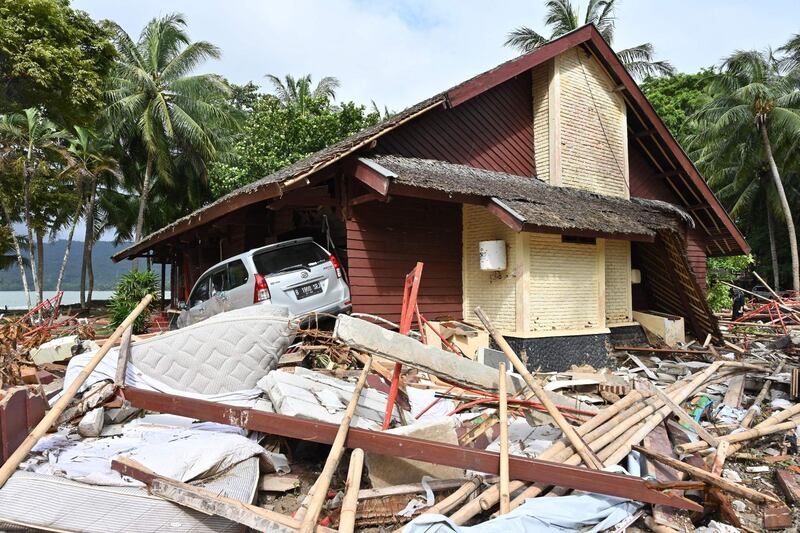We live in a global era in which the impact of disasters, natural or human-made, is felt rapidly and deeply around the world. The calamity of the earthquake and tsunami that has killed more than 280 people in Indonesia and left another 1,000 injured has been keenly felt in the UAE, where tens of thousands of Indonesians are among the expats from 200 countries living and working here.
This isn't the first time Indonesia has been cruelly struck by calamity at a time of year traditionally associated with celebration and family reunions. On Boxing Day in 2004, the country bore the brunt of the third largest earthquake ever recorded and a resulting tsunami, which together killed more than 225,000 people in 14 countries bordering the Indian Ocean. Indonesia is on the frontline of geological uncertainty. As Saturday's tsunami, generated by volcanic activity, swept ashore, the country was still recovering from a series of earthquakes and tsunamis that struck in August and September, leaving more than 3,000 dead. Among the tragedies which have left families and entire communities are left devastated, the outpouring of human compassion in response has been heartening and a great source of strength. Social media is often castigated for its negative impacts but at such moments, it has a beneficial role to play, bringing humanity together and helping to orchestrate charitable fundraising and emergency responses. Just two months ago the UAE, working with UN children's charity Unicef, dispatched emergency aid to Indonesia. Around the world, charities and NGOs are now scrambling to respond to the latest crisis.
Situated on the so-called Ring of Fire, the world's most tectonically active region, there are measures Indonesia can and must implement to prepare as much as possible for such inevitable events to limit the devastation. In the recent disasters, no early warnings were given and only on Monday did Indonesia's president belatedly order his country's Meteorology, Climatology and Geological Agency to purchase detectors capable of giving sufficient warning of impending tsunamis. So far in 2018, there have been more than 13,000 earthquakes around the world of magnitude 4.0 or above. Each one is a reminder that we live on a fragile, volatile earth and must never take it for granted.





